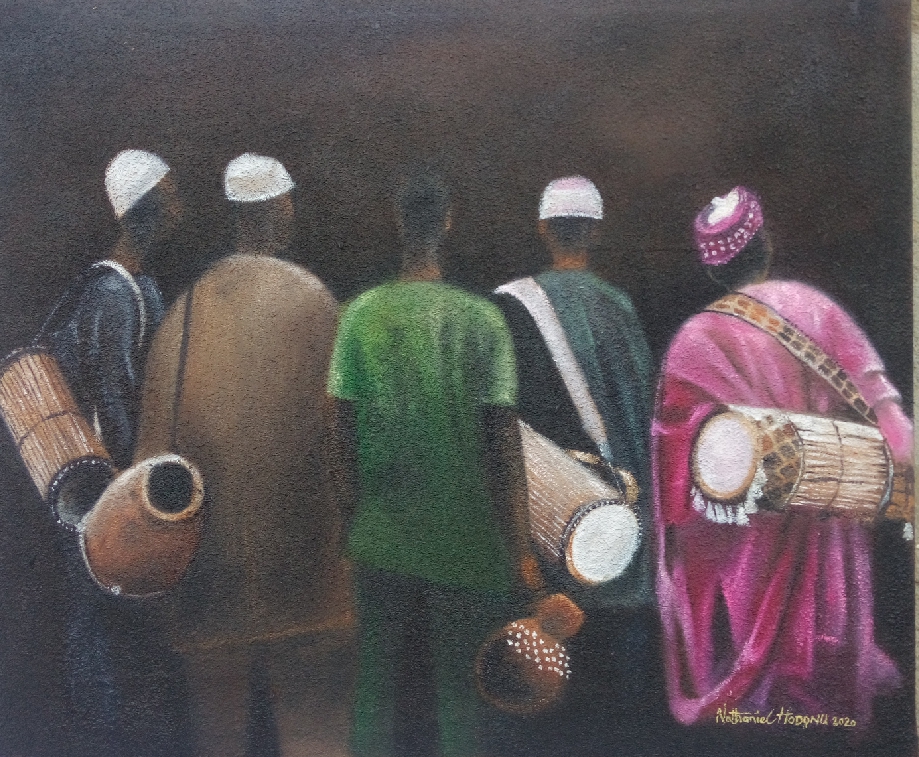Two women, a dark past, and friendship as a healing balm

By Anote Ajeluorou
THE inescapable questions Cheluchi Onyemelukwe-Onuobia’s characters in The Sons of the House (Regium/Parresia, 2019; Lagos) seem to be asking her readers are: what is motherhood? What does it mean to be a mother? Is it just the biological claim to birthing a child that gives a woman that sense of fulfillment, of motherhood? What about African men’s fixation on sons, as heirs who must inherit the heirloom irrespective of their status in society? Aren’t daughters just as human, as important as sons? What extremes do, and can, such quest degenerate for the health of all parties involved? Isn’t there a middle ground?
These are by no means comfortable questions. Even less comfortable are the answers or non-answers to these questions in societies that are still evolving, and the riveting narrative in The Son of the House would have us ponder on these nagging issues. But what is clear is the heartfelt story of two women from disparate backgrounds united by a son that is lost to one and raised by another and the intersection of their lives at a most traumatic period, when they fall victims to one of society’s most recent anomaly: kidnapping for ransom.
Julie and Nwabulu are both kidnapped as they make their way from the rich end of town in Enugu. Nwabulu, a fashion designer, had gone to deliver finished clothes to her rich client, Julie, who accompanies her guest in her car to see a friend. But a few meters away from her home, some rough boys descend on them and take them, hostage, for ransom. How do two women, one elderly the other middle-aged, pass time in the den of kidnappers while waiting for the ransom to be paid? They fall back on the story- and truth-telling about their lives, the not-so-pleasant past, and the hopeful present that suggests a closure to the dark past.
A story told in the first narrative voice alternating between the two characters, we see Nwabulu through her younger self, having lost both parents at a tender age and a harsh stepmother who does not want her, and being bundled off as a housemaid to the rich and not-so-rich. The unrelenting abuse such line of job brings to a young girl pervades Nabulu’s experience: Sexual assault by the master of the house and madam’s revenge and then being returned to the village. Her next housemaid job is much better, but her infatuation becomes her undoing and she gets pregnant and is sent home again. She has her baby boy, but that is when the twist in the tale gets nasty, as a widowed woman marries her for her dead son and would disappear with Nwabulu’s son into the unknown.

Julie’s life is light years apart from Mwabulu’s. With a father as a teacher, her life seems destined for the top, and it is, as she goes to university and easily secures a teaching job. But finding a husband to marry is a herculean task. She is too educated and self-possessed and independent for the men who come her way. Her mother is worried stiff; this is not helped by a younger brother who, after returning from the civil war, finds himself a loafer and drunkard. With age spiraling out of her grip, Julie is desperate to overcome her greatest challenge as a woman in a society that is unforgiving for an unmarried and childless woman.
While Nwabulu commits the abominable by having a child out of marriage, Julie’s ordeal is being husbandless and childless. But while Nwabulu finds macabre lucky to have been married to a dead man, so her child could have the protective covering of a family and inheritance, Julie’s situation seems hopeless. How does she remain single at over 30 years of age in Igboland’s 1970s? How does she overcome these two women-focused important and existential challenges?
Luckily, both women have their respective friends who hold their hands through these dark periods. Nwabulu has her primary schoolmate Chidinma who introduces her to her sister from where she finds a new bearing in her life from her stark, dark past. Meanwhile, Julie also has her secondary schoolmate Obiageli who would help her plot her route to a man’s heart through subterfuge with an imaginary pregnancy for a son he desperately needs to continue his ancestral lineage.
When these two women’s tales climax at the den of their young kidnappers, they find a common denominator at the heart of their tales: a son lost in curious circumstances with a mother’s lifelong festering heartache and a son stolen to secure a husband and infinite riches just to escape the trauma of unmarried and childless status. Although not expressly stated, Onyemelukwe-Onuobia’s work hints at the baby factory boom in parts of the country, with society’s unreasonable expectations of how men and women should be defined: a man must have sons or else he is a failure no matter how many girls he sires while a woman must be married and have children of her own otherwise she is a hopeless failure. Thankfully, society is fast becoming more fluid and accommodating, and moving away from these unreasonably exerting and primordial societal expectations where men or women can have fulfillment in whatever status they find themselves…
Onyemelukwe-Onuobia’s The Son of the House is ordinarily a dark novel only lightened by the ingenuity of the author’s craftsmanship. This is further helped by her narrative that is crispy, austere and richly anecdotal. Onuobia writers with felicity and her characters oscillate from the extremity of intense sadness to the abandonment of laughter and the indeterminate in-between as life tosses them. This is a riveting story that careens to a tumultuous end, and you’d be glad you read it.



